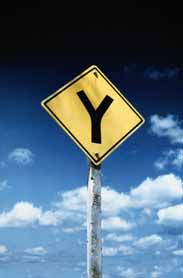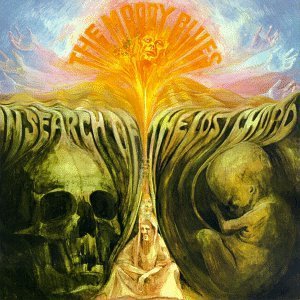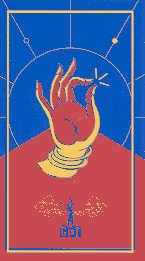An eerie silence followed the crash, but it didn’t last long. As we came to our senses — and the blessed  realization that no one had been ejected — we piled out of the vehicle. That is, everyone but me.
realization that no one had been ejected — we piled out of the vehicle. That is, everyone but me.
I couldn’t move.
God’s given us mental shock absorbers, an internal mechanism that dulls us to excessive pain, both physical and emotional. Well, mine were working overtime. Maybe it was my level of intoxication, or maybe it was shock, but it took me about six months to remember the actual events that unfolded immediately after the accident.
I remembered being carried out of the wash on a stretcher. I remembered the ambulance ride. I remembered laying on a whitewashed gurney surrounded by blue-gowned ghosts. And that was it. The next morning, slightly less intoxicated but just as dense, I discovered I was lucky to be alive, or at least, ambulatory. Several vertebrae in my spine were crushed, but there was no apparent neurological damage. Apart from some broken bones and miscellaneous contusions, no one in the vehicle had been seriously injured. I was hospitalized for a week and then consigned to rehab and a back brace. Somehow, we attributed our survival more to the tank we were driving than divine intervention.
You’d think that was my wake-up call. But my head was as impenetrable as that old Chevy; it would be another four years before the light bulb went on. In between was an existential angst even more tender and tortured than my flimsy spine.
Within a year of graduation, I landed a job at Kaiser Steel. The money gave me a newfound freedom, which proved to be both a blessing and a curse. Not only was I able to rent a nice apartment and buy a truck, I could now explore more exotic panaceas. It didn’t take long for me to begin selling cocaine and designer drugs. But underneath the cool facade, a spiritual disconnect remained. My record collection grew, as did my library; I continued sketching and painting, displayed some pieces at a local art house and even made some money at it. But, unbeknown to me, my spiritual yearnings dovetailed with my drug habit and took on a weird religious tone.
I began exploring Eastern mysticism more aggressively, studying books like Paramhansa Yogananda’s Autobiography of a Yogi. Much of this was fueled by the prevalence of Eastern thought in rock music, and many of these bands became my guide.  The Beatles had went from singing I Wanna Hold Your Hand to I am the Walrus, their albums becoming increasingly surrealistic as they delved into drugs and mysticism. For instance, their song Within You Without You on the Sgt. Pepper’s Lonely Hearts Club Band album, based on the Hindu concept of maya, was a direct result of George Harrison’s study of eastern religion. The Moody Blues’ album In Search of the Lost Chord is a concept album chronicling the search for a mythical “lost chord,” revealed in the mantra Om. I became so enamored of the sacred syllable, that I bought jewelry and artwork with the image. One of my all-time favorite bands was Yes. I found their symphonic / jazzy / progressive rock sound, combined with abstract, unconventional lyrics, to contain profound spiritual themes. The footnotes for their experimental, double disc Tales From Topographic Oceans referenced the “four part Shastric Scripture” (Shrutis, Suritus, Puranas, Tantras), with the first song on the album being The Revealing Science of God. I became so enchanted by Yes that I saw them half a dozen times in concert.
The Beatles had went from singing I Wanna Hold Your Hand to I am the Walrus, their albums becoming increasingly surrealistic as they delved into drugs and mysticism. For instance, their song Within You Without You on the Sgt. Pepper’s Lonely Hearts Club Band album, based on the Hindu concept of maya, was a direct result of George Harrison’s study of eastern religion. The Moody Blues’ album In Search of the Lost Chord is a concept album chronicling the search for a mythical “lost chord,” revealed in the mantra Om. I became so enamored of the sacred syllable, that I bought jewelry and artwork with the image. One of my all-time favorite bands was Yes. I found their symphonic / jazzy / progressive rock sound, combined with abstract, unconventional lyrics, to contain profound spiritual themes. The footnotes for their experimental, double disc Tales From Topographic Oceans referenced the “four part Shastric Scripture” (Shrutis, Suritus, Puranas, Tantras), with the first song on the album being The Revealing Science of God. I became so enchanted by Yes that I saw them half a dozen times in concert.
The music was fast becoming a sacramental element in my religious quest.
It paved the way for a more dangerous search — transcendence through death. More specifically: Ego death. I found the concept first in Aldous Huxley’s The Doors of Perception. The book details Huxley’s experimentation with mescaline. It is well-known that Jim Morrison’s Doors took their name from Huxley’s work, further reinforcing the music/drugs/religion connection. Huxley brought a clinical element to my thinking about hallucinogens. Leary framed it as religion. The Psychedelic Experience is Timothy Leary’s translation of The Tibetan Book of the Dead. Describing itself as “a journey to new realms of consciousness,” the book uses the Tibetan model for the “pre-mortem-death-rebirth experience,” making parallels between the spiritual trip and the acid trip. Pretty weird, huh?
parallels between the spiritual trip and the acid trip. Pretty weird, huh?
Either way, I had something to sink my teeth into. This wasn’t like the religion of my parents — hollow, ritualistic, impotent, unfulfilling. This had bite. The spiritual hunger I’d had all my life was a hunger for enlightenment — in the Eastern sense, of course. Through LSD and rock music, and the principles outlined in the Tibetan Book of the Dead, I was convinced I could quell the emptiness.
I began to plan “psychedelic sessions” and things were charged with a new energy. Songs like Yes’ Close to the Edge and The Gates of Delirium seemed to contain hidden pieces of a redemptive struggle.
Choose and renounce throwing chains to the floor.
Kill or be killing faster sins correct the flow.
Casting giant shadows off vast penetrating force
To alter via the war that seen
As friction spans the spirits wrath ascending to redeem.(Yes, The Gates of Delirium, Relayer 1974)
Then there was The Moody Blues’ House of Four Doors and Legend of a Mind, which celebrates Leary’s “death,” inviting us to take “trips” along “his astral plane.” And The Actor,
The curtain rises on the scene
With someone shouting to be free
The play unfolds before my eyes
There stands the actor who is me
Suddenly, it was all making sense. I was “the actor” — I’d always been — and there I was, “shouting to be free.” However, the curtain was about to rise on something devilish. . .















you’re so lovin this, aren’t you?!!! 😉
funnies aside, thanks for sharing your story. wow. it validates your writing – and, i know your life honors God. really cool.
Actually, I am lovin’ it. I’ve always wanted to chronicle my journey and it just seemed like the right time. Thanks for staying with the tedious tale, Ame.
Thanks for sharing, Mike. I’ve been thinking a lot about the things I was a part of before Christ and how he uses those things today, there just aren’t enough words to pinpoint exactly how that feels, y’know?
Tedious? . . . No. Real. May we not find our lives tedious. May we find them real. If more of us saw our own reality, we might then see others in their reailty rather than as “tedious.” How blessed we are that God never finds us tedious. You’re awesome, Mike. You face your reality; you face the reality of life. And You choose to see all of it … the good as well as the bad. May you draw others into your path. Speaking of the good … how’s Theo?
Mike, did you ever read Calvary Chapel’s book Harvest, about ten of the Calvary Chapel pastors and how God took them from lives very simalar to what you are describing to being pastors? You’d like it, I think. It’s wild, when you look back and see how hard Satan tried to claim you and others who would end up serving God and ministering to so many others. I’m glad you chose to share this testimony with us. I’m sure not ready to share mine (not is this venue anyhow- only in small livingrooms with limited numbers of trustworthy females:) Will be waiting for that next post!
By the way, I did watch Adaptation. Disturbing, but kinda cool. Had to laugh at many parts I could relate to:) Have you seen CAPOTE? I want to check that out. God bless.
Hey Janet, I’m a bit familiar with The CC pastors’ stories. In fact, as you’ll learn, I professed Christ in one. But I think you’re wrong about your testimony. Please share yours. I’m all ears.
Wow Mike! I heard some stories from jon- jon about your past, but I haven’t heard anything like this! I will definitely stay tuned. 😉
– Trish
Wow Dad, You bad boy, you!
– Jon-jon
This is great… well written and provocative.
I appreciated the plug for Chevy… are you getting some endorsement bucks for that? Just kidding.
Looking forward to more…
“If the doors of perception were cleansed, things would appear as they truly are, infinite.”
– William Blake (The Marriage of Heaven and Hell)